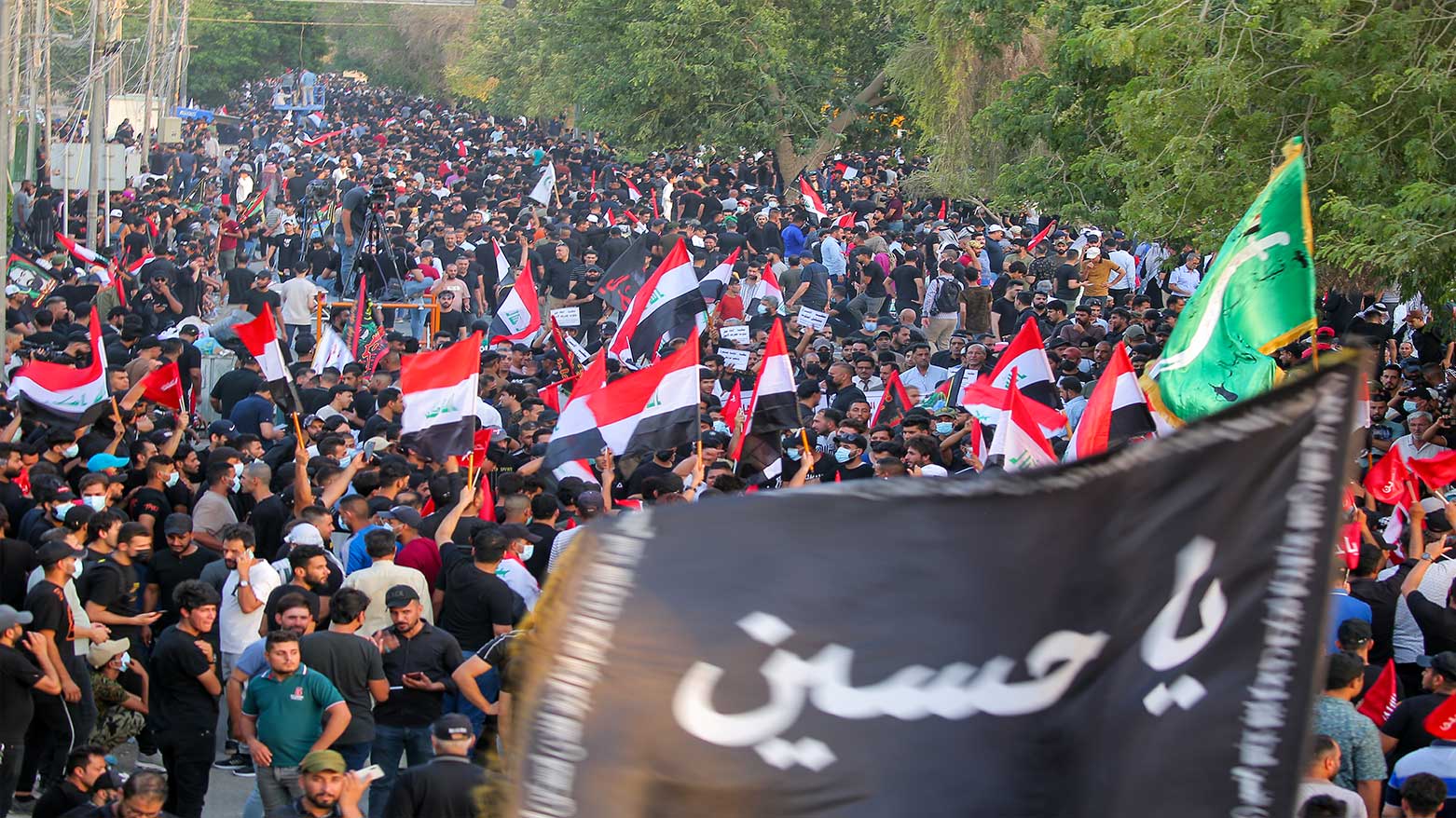Battle for Iraq: U.S. Pressure Sparks Shiite Political Showdown Ahead of 2025 Elections
Maliki reportedly argued that proceeding with elections under the current circumstances would be tantamount to “political suicide” for many factions within the Coordination Framework.

ERBIL (Kurdistan24) – A senior leader within Iraq’s Shiite Coordination Framework has publicly dismissed reports suggesting that certain political factions are attempting to postpone the upcoming parliamentary elections. The statement comes amid mounting speculation over Iraq’s political future, particularly as the U.S. intensifies pressure on Baghdad to limit Tehran’s influence.
Ali Fatlawi, a key figure within the Shiite Coordination Framework, refuted claims circulating in local media that some factions within the coalition are pushing for a delay in the elections. “These reports are false and serve only as political maneuvering aimed at disrupting and influencing the electoral process,” Fatlawi stated.
He further emphasized that all forces within the Shiite Coordination Framework remain committed to holding elections as scheduled, which are expected to take place before the end of the year. “There is no political or governmental necessity to delay the election process,” he added, dismissing any need for postponement.
Fatlawi’s remarks follow reports from sources close to the Coordination Framework, which claimed that influential Shiite leaders, including former Prime Minister Nouri al-Maliki and the head of the Badr Organization, Hadi al-Amiri, had convened with several parliamentary faction leaders to discuss delaying the elections. The purported reasoning behind this move was an unfavorable political climate that could jeopardize their influence.
According to these sources, Maliki reportedly argued that proceeding with elections under the current circumstances would be tantamount to “political suicide” for many factions within the Coordination Framework. The remarks indicate deep-seated concerns among Iran-aligned groups over their ability to maintain dominance in Iraq’s shifting political landscape.
A Shifting Political Landscape Amid U.S. Pressure
Iraq’s political scene is undergoing significant turbulence, exacerbated by escalating U.S. pressure on the country’s ruling Shiite parties to curb Iranian influence. With U.S. President Donald Trump now back in office for a second term, Washington has intensified its push to free Iraq from Tehran’s grip. The Trump administration is leveraging economic sanctions, diplomatic maneuvers, and potential military pressure to weaken Iran-backed factions in Baghdad.
Amid these developments, the potential return of influential Shiite cleric Muqtada al-Sadr to Iraq’s political scene is gaining attention. Known for his nationalist stance and his outspoken opposition to Iranian influence in Iraq, al-Sadr has, on numerous occasions, positioned himself as an advocate for Iraqi sovereignty.
Observers predict that with U.S. backing, al-Sadr could make a strong political comeback, using this year’s elections to challenge and possibly unseat Iran-aligned Shiite parties. His reemergence could mark a new phase in Iraq’s governance, shifting power dynamics in favor of nationalist and independent political forces.
If Trump follows through on his threats against Iraq’s Shiite rulers, the country’s political landscape could witness the emergence of new actors who are not aligned with Tehran. This shift could pave the way for nationalist or Western-aligned figures to gain influence.
As the political uncertainty deepens, the coming months will be crucial in determining Iraq’s trajectory and the future balance of power between Tehran and Washington in Baghdad.
With the prospect of elections still uncertain, Iraq’s leaders face mounting pressure to navigate both internal divisions and external challenges as they prepare for a potentially transformative period in the nation's governance.